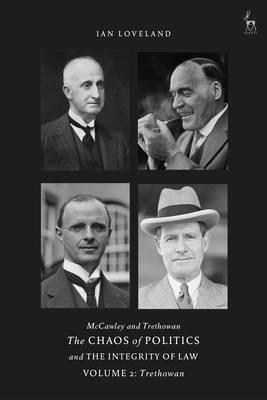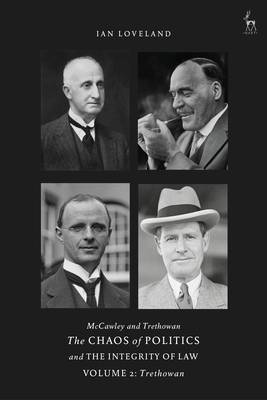
- Retrait gratuit dans votre magasin Club
- 7.000.000 titres dans notre catalogue
- Payer en toute sécurité
- Toujours un magasin près de chez vous
- Retrait gratuit dans votre magasin Club
- 7.000.0000 titres dans notre catalogue
- Payer en toute sécurité
- Toujours un magasin près de chez vous
McCawley and Trethowan - The Chaos of Politics and the Integrity of Law - Volume 2
Trethowan
Ian Loveland
Livre relié | Anglais
112,95 €
+ 225 points
Format
Description
In the second part of this two-volume study, Ian Loveland delves deeply into the immediate historical and political context of the Trethowan litigation which began in New South Wales in 1930 and reached the Privy Council two years later. The litigation centred on the efforts of a conservatively-inclined government to prevent a future Labour administration led by the then radical politician Jack Lang abolishing the upper house of the State's legislature by entrenching the existence of the upper house through the legal device of requiring that its abolition be approved by a state-wide referendum.
The book carefully examines the immediate political and legal routes of the entrenchment device fashioned by the State's Premier Sir Thomas Bavin and his former law student, colleague and then Dean of the Sydney University law school Sir John Peden, and places the doctrinal arguments advanced in subsequent litigation in the State courts, before the High Court and finally in the Privy Council in the multiple contexts of the personal and policy based disputes which pervaded both the State and national political arenas. In its final chapter, the book draws on insights provided by the detailed study of McCawley (in volume one) and Trethowan to revisit and re-evaluate the respective positions adopted by William Wade and Ivor Jennings as to the capacity of the United Kingdom's Parliament to introduce entrenching legislation which would be upheld by the courts.Spécifications
Parties prenantes
- Auteur(s) :
- Editeur:
Contenu
- Nombre de pages :
- 216
- Langue:
- Anglais
Caractéristiques
- EAN:
- 9781509948277
- Date de parution :
- 29-07-21
- Format:
- Livre relié
- Format numérique:
- Genaaid
- Dimensions :
- 156 mm x 234 mm
- Poids :
- 476 g

Les avis
Nous publions uniquement les avis qui respectent les conditions requises. Consultez nos conditions pour les avis.






